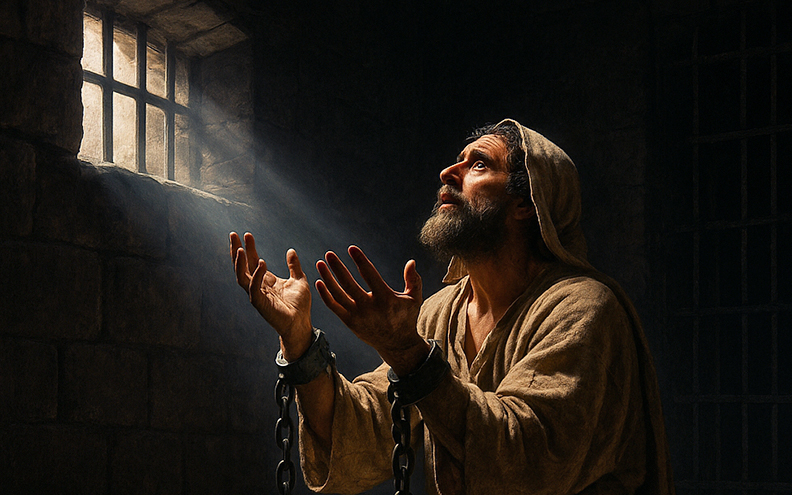When Idols Fall, Restoration Begins

Every person, even one who has strayed far from the truth, can find hope for restoration through the mercy and long-suffering of God. The Lord remains unchanged—a loving Father, full of compassion, just as He was in the days of Moses. “For I the Lord do not change; therefore you, O children of Jacob, are not consumed” (Malachi 3:6). This truth is echoed in the New Testament: “Jesus Christ is the same yesterday and today and forever” (Hebrews 13:8). The constancy of God’s character gives us confidence that there is always a way back for those who have gone astray.
The story of King Manasseh, as detailed in 2 Chronicles 33:1–20, powerfully illustrates how deeply a person can fall into rebellion against God. Manasseh reigned for fifty-five years—longer than any other king in Judah, including David. But his reign was marked not only by idolatry but by a level of depravity that surpassed even the pagan nations the Lord had previously driven out before Israel. He built altars to Baal, worshiped the starry host, placed idols in the very temple of the Lord, sacrificed his children in the Valley of Hinnom, and practiced sorcery, divination, and witchcraft. “Manasseh led Judah and the people of Jerusalem astray, so that they did more evil than the nations the Lord had destroyed before the Israelites” (2 Chronicles 33:9). And though “the Lord spoke to Manasseh and his people, they paid no attention” (2 Chronicles 33:10). Their downfall began with a refusal to listen to the voice of God.
“Faith comes from hearing, and hearing through the word of Christ” (Romans 10:17). Manasseh and his people rejected the Word, choosing instead the idols of their hearts—be they tangible or internal. Self-importance, pride, the idolization of family, career, or social validation—these are the modern forms of idolatry. The apostle Paul calls “covetousness… idolatry” (Colossians 3:5). The first idol every person must confront is themselves. When love for self exceeds love for God, it opens the door to every other sin.
God intervened—not with immediate destruction, but with redemptive discipline: “The Lord brought against them the army commanders of the king of Assyria, who took Manasseh prisoner, put a hook in his nose, bound him with bronze shackles and took him to Babylon” (2 Chronicles 33:11). Babylon, throughout Scripture, symbolizes confusion, disorientation, and separation from God’s presence. And yet, in God’s divine pedagogy, even exile becomes a place of repentance. As the Lord says, “Those whom I love, I reprove and discipline” (Revelation 3:19).
It was in the depths of captivity that awakening came. “In his distress he sought the favor of the Lord his God and humbled himself greatly before the God of his ancestors” (2 Chronicles 33:12). Manasseh’s prayer was not ritualistic or superficial—it came from a broken, contrite heart. The Hebrew expression for “humbled himself greatly” implies full surrender: a recognition of God’s righteousness and one’s own guilt. That was the turning point.
“God opposes the proud but shows favor to the humble” (James 4:6). “And when he prayed to Him, the Lord was moved by his entreaty and listened to his plea; so He brought him back to Jerusalem and to his kingdom. Then Manasseh knew that the Lord is God” (2 Chronicles 33:13). His humility touched the heart of God. Through mercy, he came to a deep experiential knowledge of the Lord. Manasseh received not only forgiveness but also the restoration of his kingship. He rebuilt the altar of the Lord, tore down the pagan shrines, and “commanded Judah to serve the Lord, the God of Israel” (2 Chronicles 33:16). His repentance brought about personal renewal and spiritual reformation for the people.
Many believers today resemble Manasseh in his wayward years. They acknowledge God intellectually but live by their own standards. Week after week, they may attend services, sing songs, and listen to sermons—yet remain unchanged. As Christ warns: “Not everyone who says to Me, ‘Lord, Lord,’ will enter the kingdom of heaven, but only the one who does the will of My Father who is in heaven” (Matthew 7:21). We cannot keep living as we did yesterday—God expects genuine transformation, not religious performance. Hearing the Word is not enough; we must respond with obedience. “Be doers of the word, and not hearers only, deceiving yourselves” (James 1:22). The flow of God’s blessing begins with a heart that listens in order to obey.
“If you fully obey the Lord your God and carefully follow all His commands I give you today, the Lord your God will set you high above all the nations on earth. All these blessings will come on you and accompany you if you obey the Lord your God” (Deuteronomy 28:1–2). God’s promises include spiritual abundance, protection, honor, and triumph—not for those who merely hear, but for those who obey. Our lives are not defined by external circumstances, but by the eternal Word of God, which “endures forever” (1 Peter 1:25). Humility means aligning ourselves with this Word, acknowledging its supreme authority above all personal feelings, thoughts, or cultural narratives.
Our prayers must reflect humility, like Manasseh’s in Babylon—not performance-driven, not rooted in religious duty or guilt, but shaped by the awareness of God’s righteousness and mercy. “God, be merciful to me, a sinner!” (Luke 18:13)—the tax collector’s prayer remains a timeless model of genuine repentance. Like Manasseh, we must come to God and confess: “Lord, I cannot do this on my own. I recognize the damage I’ve caused by my stubbornness, but I believe You can restore even what seems irreparably broken.” God is able to bring us back to our spiritual Jerusalem, to lead us out of the confusion and captivity of our own Babylon.
No matter where you are today—trapped by past sins, disoriented by wrong choices, stuck in cycles of spiritual failure—God is patiently waiting for your return. “The Lord is not slow in keeping His promise, as some understand slowness. Instead He is patient with you, not wanting anyone to perish, but everyone to come to repentance” (2 Peter 3:9). Just as God restored Manasseh—a man once consumed by idolatry and violence—“He was moved by his prayer and brought him back to his kingdom” (2 Chronicles 33:13). That is grace: unearned mercy, freely given to all who are willing to bow before the Father in repentance.
Humility is not weakness—it is spiritual strength. It is the courage to admit wrong, and the wisdom to trust that God is right. It is a posture of openness, a readiness to change, and a living faith that trusts the truth of Scripture above the noise of the world. “Let God be true, and every human being a liar” (Romans 3:4). When we walk in humility, grace abounds—not as a reward for good behavior, but as a gift from the Father’s heart to His beloved children.
Let us cast out every idol—external or internal—and devote our worship, our love, and our trust to the Lord alone. “Worship the Lord your God, and serve Him only” (Matthew 4:10). If God restored Manasseh’s dignity and influence after such profound failure, how much more will He restore us—those who have been redeemed by the precious blood of His Son. “If we confess our sins, He is faithful and just to forgive us our sins and to cleanse us from all unrighteousness” (1 John 1:9).
Pastor Oren Lev Ari
